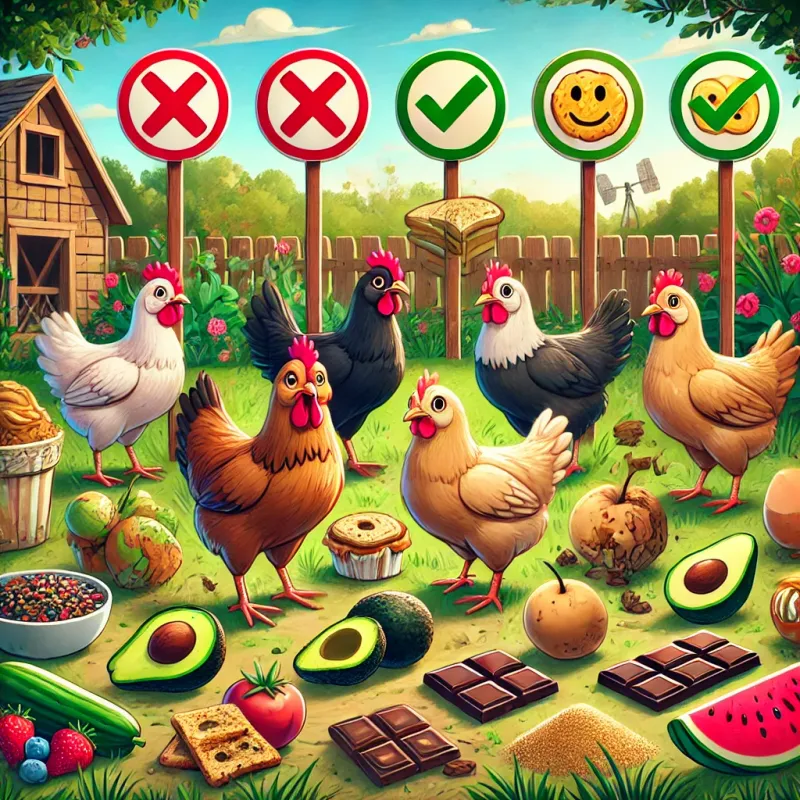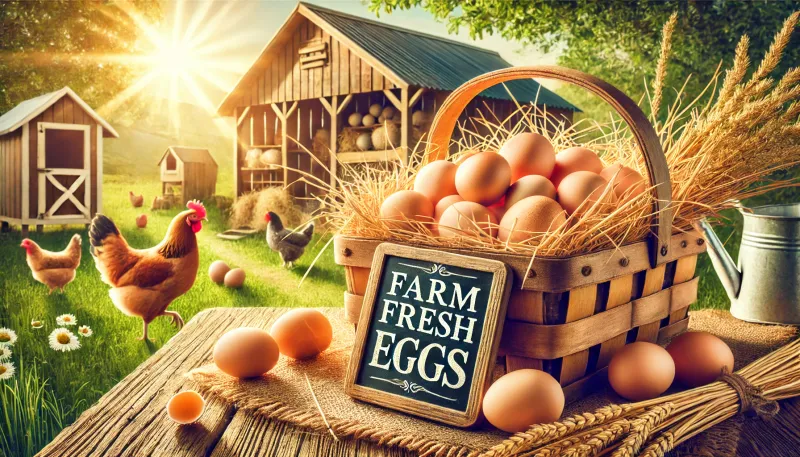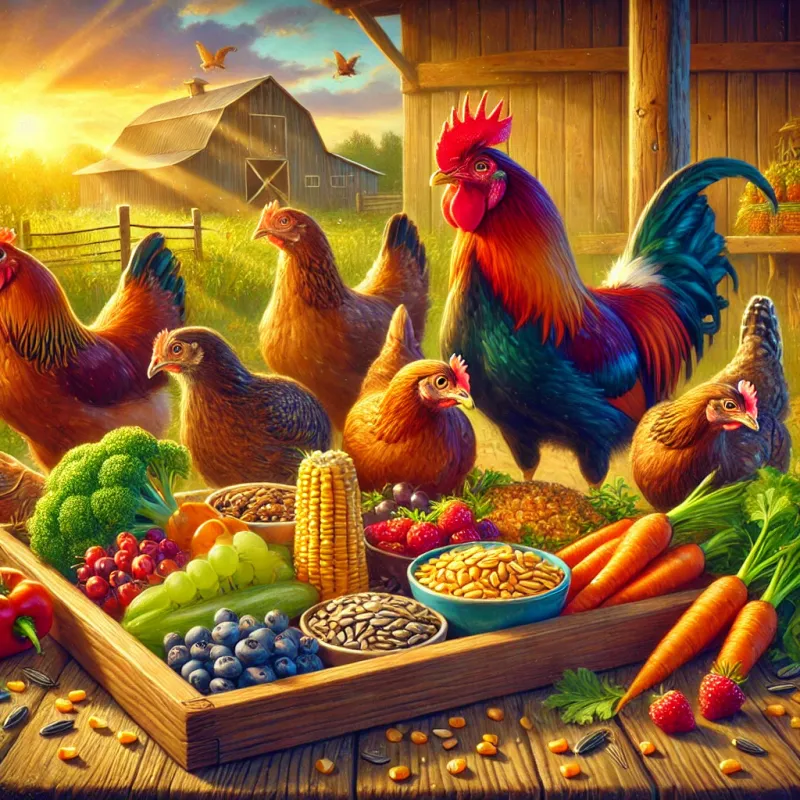Published on 2024-10-15 21:47
The Best Foods to Feed Your Chickens: A Nutritious Guide
Raising healthy and happy chickens starts with providing them a balanced and nutritious diet. While it’s crucial to know what foods to avoid (which we cover in our companion post, “Foods You Should Never Feed Your Chickens”), this article focuses on the best foods to keep your feathered friends thriving.
1. Commercial Chicken Feed
The foundation of any chicken’s diet should be a high-quality commercial chicken feed. These feeds are formulated to provide the right balance of nutrients, including:
- Protein
- Carbohydrates
- Vitamins
- Minerals
Choose a feed appropriate for your chickens’ life stage (starter, grower, layer, or broiler).
2. Grains and Seeds
Chickens love pecking at various grains and seeds. Some excellent options include:
- Corn (cracked or whole kernels)
- Wheat
- Oats
- Barley
- Sunflower seeds (in moderation)
These provide essential carbohydrates and some protein.
3. Fruits
Fruits offer vitamins and variety to your chickens’ diet. Some favorites include:
- Berries (strawberries, blueberries, raspberries)
- Melons (watermelon, cantaloupe)
- Apples (remove seeds)
- Grapes (cut in half to prevent choking)
Remember to offer fruits in moderation, as they are high in sugar.
4. Vegetables
Vegetables are an excellent source of vitamins and minerals. Try offering:
- Leafy greens (lettuce, kale, spinach)
- Carrots
- Squash
- Pumpkin
- Cucumber
- Broccoli
5. Protein Sources
While commercial feed provides protein, you can supplement with:
- Mealworms (live or dried)
- Earthworms
- Cooked eggs (scrambled or boiled)
- Greek yogurt (plain, no sugar added)
6. Grit and Calcium
Chickens need grit to help grind their food in their gizzards. Offer:
- Small pebbles or coarse sand
- Crushed oyster shells (especially for laying hens)
7. Kitchen Scraps
Many kitchen scraps can be great treats for chickens, such as:
- Cooked rice or pasta
- Stale bread (in moderation)
- Vegetable peelings
Always ensure scraps are free from mold and not overly processed or seasoned.
Conclusion
Providing a varied and balanced diet will keep your chickens healthy, happy, and productive. Remember to introduce new foods gradually and in moderation. While this guide covers the best foods to offer, it’s equally important to be aware of harmful foods. For a comprehensive list of what not to feed your chickens, check out our companion post, “Foods You Should Never Feed Your Chickens.”
By following these guidelines and avoiding unsafe foods, you’ll ensure your flock remains in top condition. Happy chicken keeping!
← Back to blog




